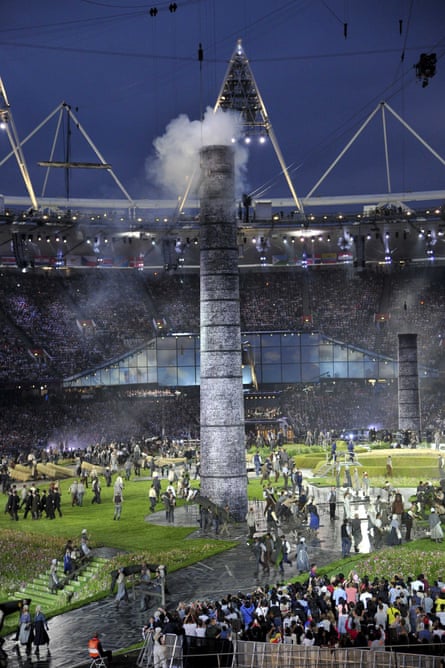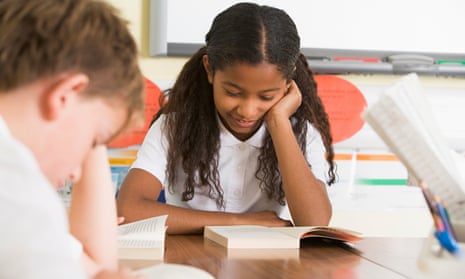Both the government and the arts agencies have recently begun to talk about the economic importance of culture – by which they mean the West End or the film industry. But we need to understand how culture happens. It always floats on a sea of favours and loyalties. Even a massive West End hit like War Horse begins with Michael Morpurgo kindly inviting city children to his farm and watching how they related to the horses. If you try and do it for money you end up with Viva Forever!. Or Viva Six Weeks. And the same is true of the individual reading experience.
I visit many schools. I see amazing, creative work being done – especially in primary schools. But I have a nagging fear that in encouraging literacy we are killing the pleasure of reading. I love visiting schools. There’s a humbling, Homeric magic in the sight of a crowd of children sitting down waiting to listen to your story. A few months ago, however, a lovely young NQT stepped between me and that crowd and said: “Now we are very lucky to have Frank with us today. We’re going to use our Listening Skills (she touched her ears) to try and spot his Wow Words (what?) and his Connectives so that we can appreciate how he builds the story.” Imagine going on a date with her. “We’re going to have some proteins. Some carbs – not too many – and conversation. If you make me laugh, that’s a physical reaction so it puts you on the erotic spectrum and you might get lucky.” But an encounter with a story should be every bit as unpredictable, dangerous, full of potential and fear as a first date. My mailbox nowadays is filled with A4 envelopes containing nicely illustrated letters from year 6 classes. Thirty letters telling me that their favourite author is me and can I answer some questions. They’re nearly all the same questions. Time and time again I come across teachers reading a story and then asking immediately for some kind of feedback. A piece of “creative writing” “inspired by” the story. Some opinions about character and wow words. Something to show the parents or the school inspectors. It pollutes the reading experience by bringing something transactional into play. It destroys pleasure.
Whenever I talk about this I get the feeling that people are suspicious of the idea of pleasure. They put it in the same category as fun or distraction. Pleasure is different. Pleasure is a profound and potent form of attention, a kind of slow thinking. Pleasure anchors an idea or an image or a concept in your mind and keeps it there for years and years, allowing you to bring to bear on it not just your intellect but all your other mental qualities – excitement, nostalgia, misunderstanding, familiarity – until it comes out. When I offer you a story I don’t want you to come back to me with a description of how I did it. I don’t think of my reader as a trainee writer. I’m hoping that it stays in your mind and comes out again in ways I could never have predicted – as an engineering idea, as a cake, as a hug that you give your dad.
I want to offer some practical suggestions about how to create this possibility. Read aloud. Just do it. As a treat. We think of reading as a solitary activity but some of my most important reading experiences were very much shared. Sister Paul reading to us in year 6 when we had been good. Jackanory on TV. And for my children – rushing home with the new Harry Potter to read it that very night like a million other children. I work with an organisation called The Reader, which runs reading groups for people in schools, in drug rehab, in prison, in nursing homes. The results are astonishing. I’m going to quote one testimony from a man named Phil Conway who was persuaded to go to one of these groups – two hours a week – by his social worker. Phil’s life was chaotic and violent. He did time for glassing a friend in the face after the friend said, “I can see through you.” Here’s what he wrote:
“In the group I met friends for life all with a growing shared love for literature, as a common interest. I left behind a way of life and a group of people who were not serving me well. I found a particular friend from the reading group and we had a mutual love of reading Shakespeare. To date we have read 17 of his plays and watched them on DVD and at the theatre. I remember vividly an encounter with Henry V and Falstaff with whom Henry sowed his wild oats but Henry rejected Falstaff when he became king with the words ‘do I know thee old man?’. I don’t feel judgmental towards myself or the people I was associated with at that time but I had to reject the ways of the past and the reading group assisted me to do this for my own wellbeing. I am simply not the same man who walked into the book group five years ago.
“This week I was sitting on a table drinking a cup of tea outside a cafe and a man walked past and I was able to look up and exchange a smile. I’ve become open to the world in a way I’ve never experienced previously.”
The important thing about these groups is that no one is asked to say anything. Just to take the story and keep it in your brain. Phil talks brilliantly elsewhere about the unusual combination of mental alertness and absolute lack of attention he experienced in these groups.

While we were working on the London 2012 Olympic opening ceremony, Danny Boyle met David Hockney and talked to him about Humphrey Jennings’s Pandaemonium – a book I’d given Danny which evokes the industrial revolution and is filled with the clanking of machines, the yells of protests, tears of goodbye, cries of excitement and whispers of conspiracy. Hockney gave us this amazing image to think about. He said, imagine this, the sun pouring down energy from the beginning of time, energy that went into algae and into the leaves of trees, which then sank into the earth and fossilised. What is coal or peat but the stored memory of millions upon millions of uninhabited summers. When the industrial revolution came along, someone opened a hole in the ground and reversed that process. That energy poured out and was harnessed and turned into engines and rockets and aeroplanes and central heating and motor cars, unleashing this wave of incredible creativity. That’s how it should be with stories. They should be sunlight pouring down upon your head and being stored as energy until the day you need them. Whenever we ask for something in return, they are taking that powerful charge and earthing it. Wasting it into the ground. May I take this opportunity to wish you all endless sunlight.

Comments (…)
Sign in or create your Guardian account to join the discussion